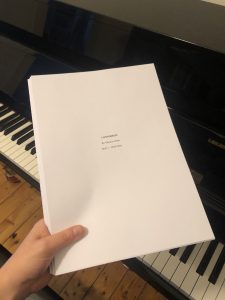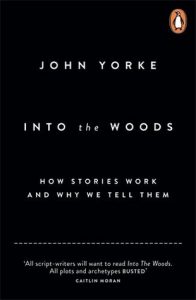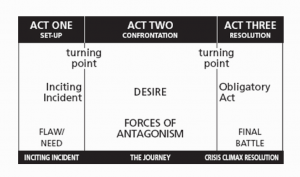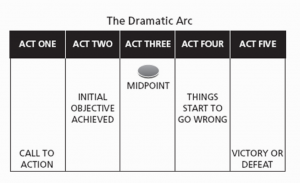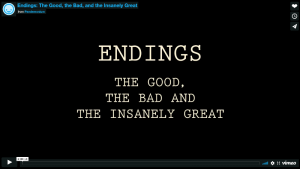Victoria Zerbst – Rebel Wilson Comedy Commission Blog 2
The Marathon to Musical Situation
I submitted my first draft ten days ago. It feels like a fever; like it never happened. But I do want to go back now to those last two weeks and remind myself how challenging they actually were. So I, you know, don’t trick myself and everyone around me into thinking that this whole process was a Walk on a Sunday in the Park with George.
The Hard Times
When all my energy spent reading, listening, remembering and manifesting dried up – and it did… or rather, it transformed into exhaustion and/or sleep – I had two final tools in my kit.
- The Rest
- The Reach Out
During the difficult times in the drafting process, the times you think your work is truly bad, that there are too many problems to fix, that everything in front of you is too complicated and boring at the same time, sometimes you can just step away. Hit refresh. Not on the document, you have to hit save on the document, but rather on your life for a bit.
There were whole days I spent not engaging with my script, and yes this did feel like a crime but no, I refused to throw myself in jail. This old cliche: ‘Life’s a marathon not a sprint’ jammed its way into my cache of catchphrases and I have never run a marathon but I think they encourage you to take days off at a time to, like, spend time with friends and make candles. That’s the capital R Rest component. And I swear, when I came back after a day or two just sitting on my thoughts, I felt more excited and more refreshed to keep going.
Then there’s the Reach Out. As part of the ATYP Fresh Ink program, I was lucky enough to hear some words of wisdom from a range of literary managers from different theatre companies around Sydney, almost all of whom mentioned the importance of reaching out to your writing commissioner when you have been commissioned to write a piece of theatre during your process. Especially when you face challenges or feel like there are too many problems to solve.
I have always struggled with asking for help. I never liked asking questions in class at school and I was always obsessed with carrying around an aura of competence and impenetrable wisdom, as if that is helpful at all.
Reaching out can be humbling because you have to admit you don’t know everything. But as soon as I reached out to Jane FitzGerald, the incredible dramaturg and head of writing at ATYP, I felt so much more excited and clearer in my mind about the next steps I needed to take.
And then, with the re-knowledge that I did not have to have a perfect product for draft one, I kept going. I went back to my document and kept writing until there was a full script and then I printed the title page of that script.
The Good Times
I took that title page and held onto it with a couple of blank pages underneath and simulated the feeling of having a completed script in my hand. I emailed my written draft and the selection of songs, but I needed this one page printed out. For the dopamine hit. This is what it looked like.
The Times New Roman
I used this font for my first draft.
The Sweat Times
And now? It’s time to sit on what I’ve done (ominous) and wait for feedback, notes, and the much-anticipated Sweat Room of my creative practice.
A nice old man in the TV biz once said to me that when you create anything you cycle your ideas through three rooms:
The Dream Room: you generate ideas, you let your mind sprawl with joy and excitement.
The Reality Room: you engage with the limitations of what you’re doing and the task at hand.
The Sweat Room: you work to bring together the dreams of your work with the reality of the task.
And then you cycle through them again and again until you have a diamond.
In the Meantime
A very good friend of mine, Joel Perlgurt, a brilliant writer and confidante, gifted me this game-changing book about stories and narrative structure:
Into the Woods: How stories work and why we tell them by John Yorke
The way Yorke breaks down structure is very helpful and he really goes for the Five Act Structure as a cool extension of the classic Three Act. Some helpful diagrams from the book:
A Three Act Structure
A Five Act Structure (building on the Three)
I will definitely be going through the acts of my script to make sure it is satisfying, baby!
Another feature I have already found helpful is this set of questions Yorke believes you should ask yourself about your work once you’ve written a first draft:
- Whose story is this?
- What do they need? (flaw)
- What is the inciting incident?
- What does the protagonist want?
- What obstacles are in the way?
- What’s at stake?
- Why should we care?
- What do they learn?
- How and why do they learn this?
- How does the story end?
How DOES the story end?
Writing my first draft ending was a super challenge, but this video essay about screenplays by Michael Arndt really paved the way for me. Arndt breaks down scripts in terms of the:
- External Stakes
- Emotional Stakes
- Philosophical Stakes
and then outlines how a strong ending is able to satisfy all sets of stakes (in forty seconds or less, can you believe it?).
If you love film analysis and script writing this is a video for you. If you love well-structured, well-presented video essays, this is a masterclass and you might enjoy it. If you love the movie Little Miss Sunshine, this is written and presented by the screenwriter, Michael Arndt, and I cannot recommend it enough.
Give of Your Time (when you can)
One final thing. As part of my own practice, I always try to go out of my way to read my friends’ work. Whenever I have the time and energy I always offer my eyes because I know how helpful feedback is to writers. Giving feedback, engaging with ideas and talking to fellow writers about their process is invaluable. It is so important to develop supportive and caring relationships with other writers. You also never know when a friend will gift you a book that helps you through a rough draft. I am also just obsessed with reading scripts, engaging with story, and talking about ideas, which activities make this a real joy.
Writing is collaboration. Writing is connection. We are all stronger when we work together.
More updates coming soon! In the meantime you can catch some of the comedy sketches I write with my partner in crime, Jenna Owen, on The Feed at 10pm on SBS. Or sign up to my newsletter here.
